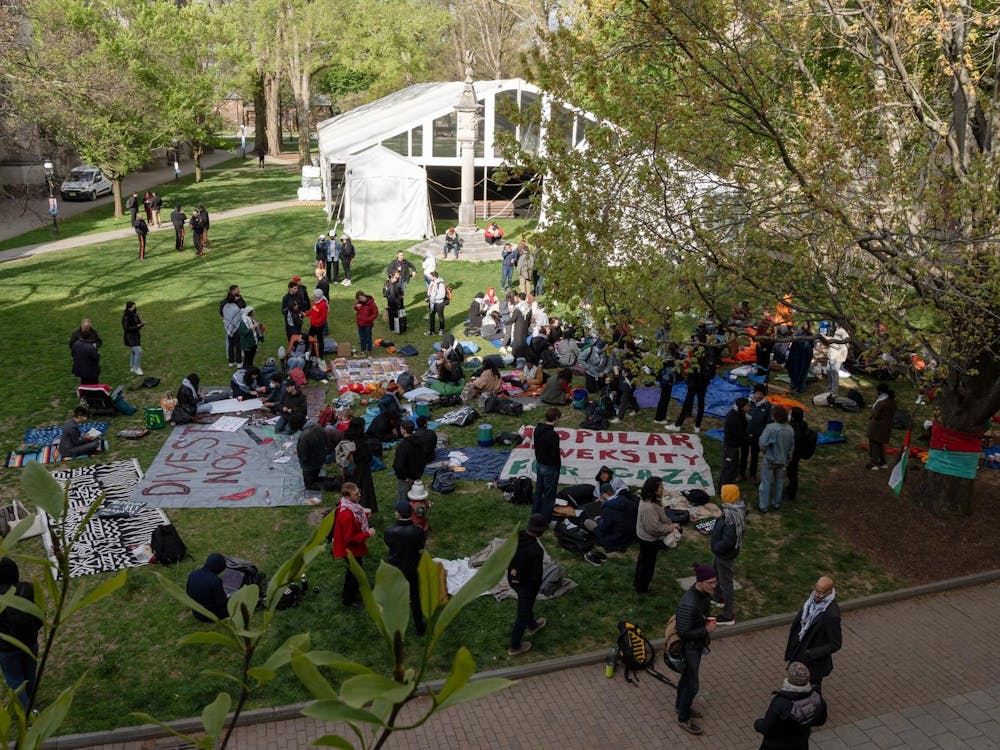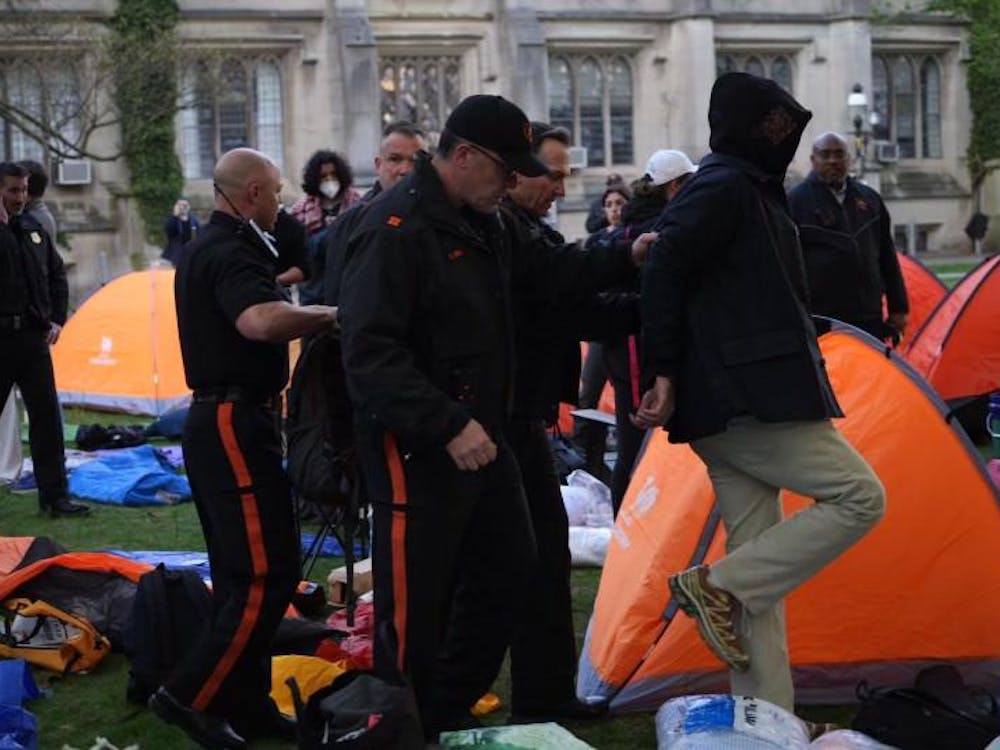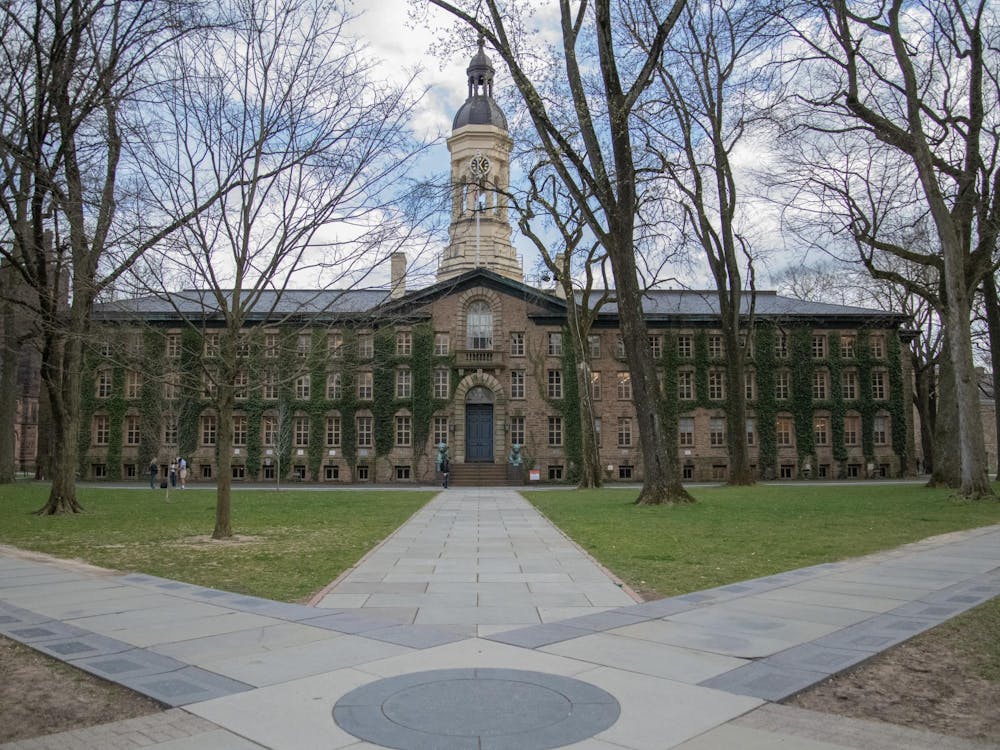In an opinion poll conducted by the Graduate Student Government earlier this month, 58.8 percent of voters cast ballots in favor of divestment.
The graduate students called on the University to“divest from multinational corporations that maintain the infrastructure of the Israeli occupation of the West Bank, facilitate Israel’s and Egypt’s collective punishment of Palestinian civilians in the West Bank and Gaza Strip, or facilitate state repression against Palestinians by Israeli, Egyptian, and Palestinian Authority security forces, until these corporations cease such activities.”
Undergraduate students had previously voted against divestment by a small margin on a similar referendum.
When combined together, the results of the undergraduate student referendum, in which 965 students voted in favor, and the graduate student poll, in which 417 students voted in favor, represent a 50.4 percent favorable view of divestment.
“We see the combined favorability of divestment among undergraduate and graduate students as a mandate to continue pushing forward with the effort,” Kelly Roache GS, co-chair of the Princeton Divests Coalition, said. “Because both populations have voted doesn’t mean that human rights violations or the occupation has ended. We want to continue to get students thinking about the University’s complicity.”
GSG president Akshay Mehra GS noted that a poll is very different from a referendum.
“Referendums have connotations that we don’t want to apply to this situation," Mehra said. "The referendum implies that the entire graduate student body is voting on and had a binding nature to it."
According to Mehra, the poll represented 27.5 percent of the graduate student body.
“The turnout is not extremely high, but it does demonstrate that people are actively participating,” Mehra said.
Roache said that while the poll result does not constitute the official stance of GSG, GSG will publish and transmit the result to the Council of the Princeton University Community Resources Committee, which is responsible for making investment recommendations to the University.
Aside from making a case to the Resources Committee, Roache added thatPrinceton Divests will extend its education and awareness campaign efforts in the fall semester.
Elise Backman ’15, a leader in the No Divest movement, attributed the poll results to the absence of one-to-one conversations on the topic in the graduate community.

“We had a lot of time over the year to have those discussions at the undergraduate level. If we had the time, we believe the results would’ve turned out very differently. Unfortunately, the graduate students didn’t have as much time,” Backman said.
Backman also explained that, due to time constraints, the No Divest coalition lacked the opportunity to shape the language of the poll question, which she described as “very emotionally and politically charged.”
After a divestment petition is submitted for examination, Roache said the Resources Committee will produce a formal document detailing the reasons and logic behind its decision, regardless of what that decision is.
In the case of the Princeton Sustainable Investment Initiative’s recent divestment petition, the Resources Committee presented such a document accounting for the rejection of PSII's proposal. The proposal included divestment from companies that had what they termed questionable environmental records.
Roache added that Princeton Divests will push back if reasoning in the document is flawed or, if legitimate concerns are raised, will make more informed decisions.
Along the road of the divestment campaign, Roache said she recalled multiple instances of less than amicable confrontations between the two sides.
“We have many documented instances of harassment against individual members of the Princeton Divests campaign," Roache said. "It is disappointing and unfortunate, and it was not necessarily at the hands of the opposition.”
Roache explained that these incidents often took place through anonymous channels. Members of the coalition received threats issued by email and the internet, and Yik Yak has seen waves of anti-Islamic and anti-Arabic comments, she said, adding that many posters that were hung around campus from both sides were defaced or taken down.
Belligerent behavior mostly ceased after the campaign concluded and the poll result was announced, Roache noted.
Backman also recalled instances where members of No Divest encountered criticism for their views.
“Both sides have received a lot of animosity and it’s easy to resort to ad hominem attacks,” she said."However, the silver lining of all this is that the campus is more educated about this issue."
Roache said she hopes that the Resources Committee will meet the pro-divestment desires of the student body and that college students across the country will challenge the current state of affairs as University students did in the poll.
“This is a tremendous result for a university like Princeton with a history of political conservatism and inertia," Roache said.
But students can be anti-inertia without supporting divestment, Backman noted.
“The No Divest coalition is not happy with the status quo,” she explained."We are anti-occupation, we are firmly for two-state solution, but we believe divestment is counterproductive"








